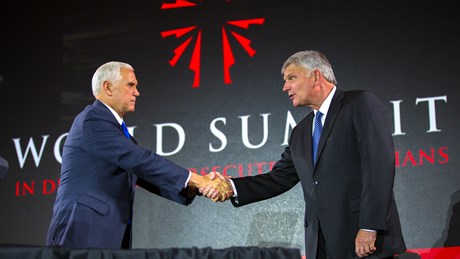If hospitality is a model for discipleship, then we need both open doors and clear boundaries.

#AmplifyWomen is a two-month-long series running on CT Women, designed to generate a new conversation about women’s leadership and discipleship. Last week we heard from Sharon Hodde Miller on how sharing your platform with others is an act of stewardship, and this week, Karen Swallow Prior invites us to practice “hospitable orthodoxy” in divisive times.
I often receive messages from people who hold to historic church teachings but are increasingly uncertain about how to share these beliefs openly in a cultural climate that’s increasingly hostile to them. One woman, for example, wrote that she wants to “maintain the message of Christ’s love and grace mingled with the truth that is so important not to withhold” but finds it hard to do so among diverse friends. Another shared that she hesitates more and more to speak out for fear of being seen as “negative and hateful.”
Truth be told, I feel these struggles myself on most days. It is not easy, for example, to tell someone I love dearly that I cannot attend his wedding because my love for him compels me not to pretend marriage is something other than what God created it to be. Nor is it easy in a world so defined by a gnostic dichotomy between spiritual and physical to insist that the Incarnation and the Resurrection—God becoming man and dwelling among us, dying on the cross and rising from the dead—are facts as true as the law of gravity.
Yet, the Bible exhorts Christians to speak “the truth in love” (Eph. 4:15). We are obligated to emulate the example of Jesus, who balanced in beautiful harmony the demands of both love and truth. Those of us concerned with not abandoning truth as we speak in love find …
Continue reading…









